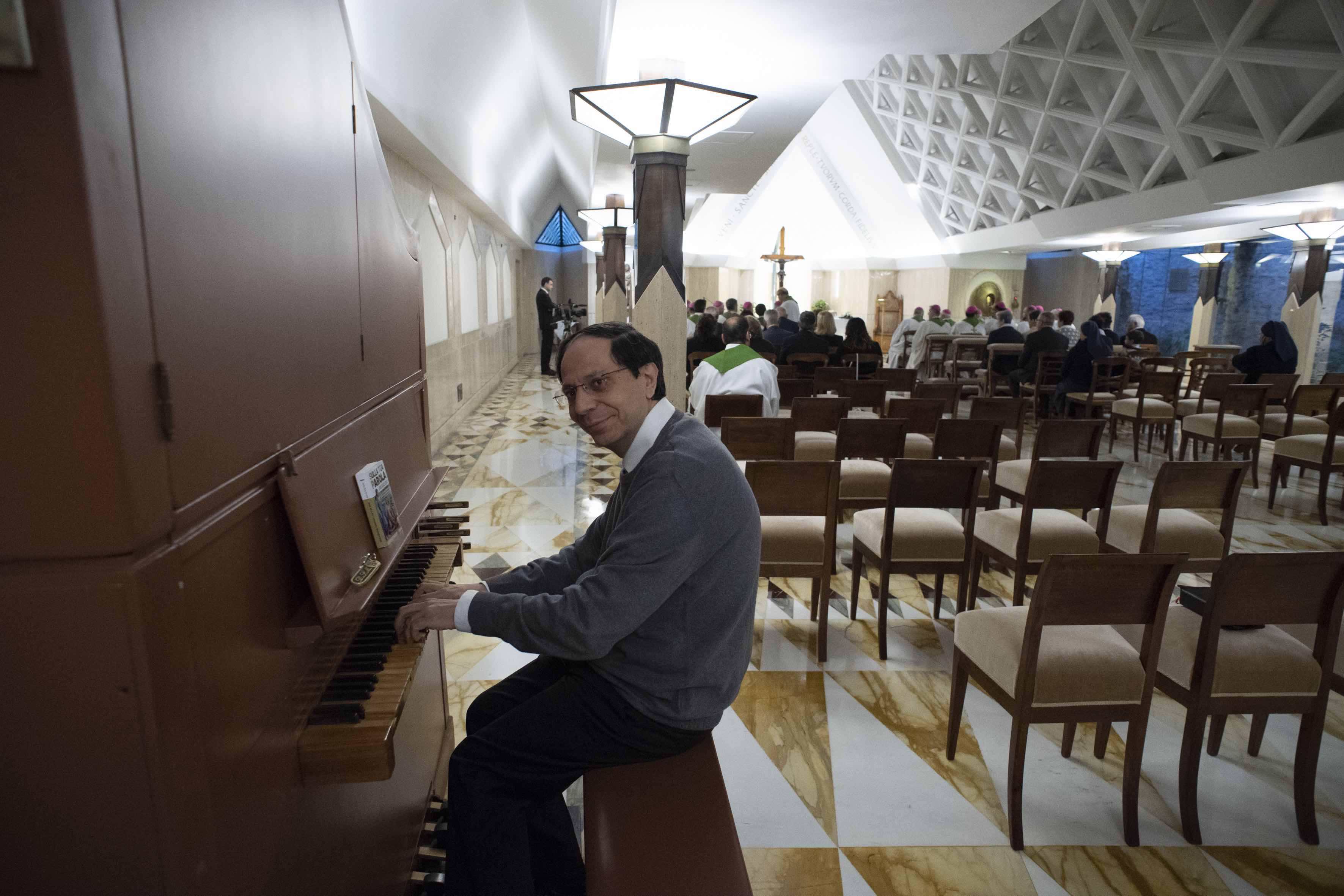I saw a little news item today about how the Pope has paid homage to the important Jesuit baroque composer Domenico Zipoli by writing an introduction to a recent book about him. And a little quote appeared in the Osservatore Romano yesterday (my translation):
“With joy I accept the invitation to write a foreword to the latest publication of maestro Sergio Militello, for some years organist at Santa Marta and currently docent at the Pontifical Gregorian University”, writes Pope Francis in the foreword to the book Domenico Zipoli (1688-1726). The musical dream of a ‘Paradise on Earth’ (Vatican City: LEV, 2018, 250 pp.) “He was,” the Pope continues, “a young missionary who, through the gift of music cultivated with passion and enthusiasm, completed a marvelous work of evangelization still remembered today. The composer Domenico Zipoli lived in the last years of his brief existence as a novice of the Society of Jesus in the city of Córdoba, a place to which I am connected, having been a spiritual director and confessor for some years of my ministry.”
Alongside that somewhat self-referential (!) quotation appears an essay by Maestro Militello, but not about Zipoli, about whom I’d really be interested in reading. Rather, it’s about themes he considers neglected in Christmas music. He cites the predominance of certain stylistic elements in the received tradition: in some pieces triumphal motifs, in some the tone of lullaby or of the pastorale, as in “Tu scendi dalle stelle”. But here is what is missing, according to the writer:
[…] in the musical literature it is difficult to find compositions that set the real “drama” of the event of the holy night fully in the foreground: the negative reply to a request for lodging, and taking refuge in a cave for shepherds, with no help…
But the human drama of the holy family of Nazareth is still present […] in so many refugee couples [….] For them also there seems to be no sonic commentary about shared hard-working solidarity, about effective intervention to alleviate the weight of life that often – from its beginning – finds incomprehension, indifference, and atrocious silence.
Whatever else there is to say about such a commentary, it’s not a manifestation of the maestro’s artistic expertise or of any scholarly discovery on his part. It seems to be just a facile echoing of some of Pope Francis’ themes. To see this sort of space-wasting in the culture section of the Osservatore Romano, in an edition that only has eight pages for the whole paper, is disappointing.
I’m not even sure the book is worth recommending, for those who can read the Italian. It has a total of one reader review so far on Amazon, and it’s not favorable:
[…] we’re happy for the Holy Father’s attention to a musician close to our heart…. But did anyone point out that the great scholar Luis Szaran treated the subject with documentary completeness in his splendid essay “Domenico Zipoli. Una vita, un enigma” (2000)? Or perhaps that … Alessio Cervelli already published his essay “Domenico Zipoli: amo dunque suono. La scelta radicale di una vita […]” (2016)? All this new amazement shown by Militello, when he talks about examining the Spanish sources […] as though it were something unheard-of and startling: we would like to hope that it’s simply ignorance and a lack of investigation about recent publications (something that would be rigorously necessary for any scholar evaluating the status quaestionis on the object of his study), and […] not rather an insipid act of “courtly obsequiousness” toward an Argentine and Jesuit pontiff.

(UPDATE: I edited the piece after posting to improve a point of the translation. –RC)
